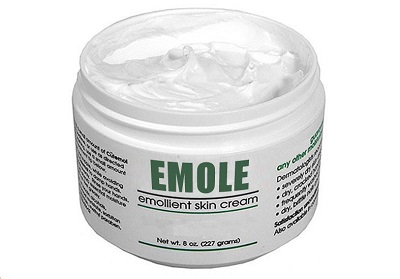A grieving son whose mum died after accidentally setting fire to herself while wearing an emollient cream is backing a campaign, launched today, to improve safety labelling on emollients and ensure people know how to use them safely.
Many emollients contain paraffin, petroleum or natural oils, all of which are flammable. Emollient creams are widely used to treat dry and itchy skin conditions such as eczema or psoriasis. They are often used by older people with mobility issues, who are also the group most at risk in a fire.
Ben Webb’s 83-year old mother Yvonne died in her north London home after she applied some emollient cream to her neck, and then tried to light a candle at her gas stove. “We aren’t sure what happened exactly, but she fled into the street where she was attended to by neighbours," he said.
"I was at home with my son when I was called to her house. It was clear when we arrived that it was very serious and she was in an ambulance. I went with her to hospital. I'm glad I did, as it was the last time I spoke to her.

“Sadly, my mother was starting to suffer from dementia and certainly had no understanding of the risks of emollient creams. I too was also totally unaware. My mother loved her family, friends and holding parties, cooking lots of food, laughing and enjoying a knees-up.
"She was intelligent and adventurous; she loved travelling. She was also a fantastic grandmother, often looking after my two children. Now it's hard to remember her life without remembering the way she died: an appalling, unnecessary way for a life to end.”
Along with Ben, London Fire Brigade and the National Fire Chiefs Council are backing the campaign by the Commission on Human Medicines, part of the Medicines and Healthcare Products Regulatory Agency (MHRA) to ensure those who use emollients or care for someone who does know the fire risk they pose – and the precautions to be taken with their use. The Commission has launched new fire risk labelling for all products in the UK classed as medicines, including many emollients.
Figures from the Brigade show that since 2017, 16 people in London died in fires where it is believed a flammable skin product was being used. Many people do not realise that emollient residues rub off skin onto fabrics and can dry in; the fabrics can then easily catch fire. Emollients that don’t contain paraffin can also present a fire risk
The Brigade's Assistant Commissioner for Fire Safety, Paul Jennings, said: “We know that people need to use these creams for health reasons, but we want to make sure they are used in a safe way.
“Our statistics show that older people with mobility issues, who are most vulnerable to fires, are also most likely to be prescribed creams for skin complaints.

"Those who use emollients or care for someone who does should avoid using candles or smoking unsupervised, especially if mobility issues mean they tend to drop things, become confused, or fall asleep while a candle or cigarette is lit. If a naked flame drops onto fabric which has a build-up of these products dried on to them, a fire can easily start and will burn faster and hotter than usual, leaving little time to react.”
“We want to make sure the message is out there so we can prevent tragedies like Yvonne’s from happening again. We welcome the improved labelling on these products.”
Anyone who is unsure can request a Home Fire Safety Visit from the Brigade to assess these risks.
Director of MHRA’s Vigilance and Risk Management of Medicines Division, Sarah Branch, said: “We want to ensure that those who are at greatest risk, and their carers, understand the fire risk associated with the build-up of residue on clothing and bedding and take action to minimise the risk. Anyone who uses emollients and has any questions or concerns should speak to a healthcare professional, such as your pharmacist or GP.
“Patient safety is our highest priority. We strongly encourage anyone to report any issues with such products, or more generally with any medical device, to our Yellow Card Scheme.”